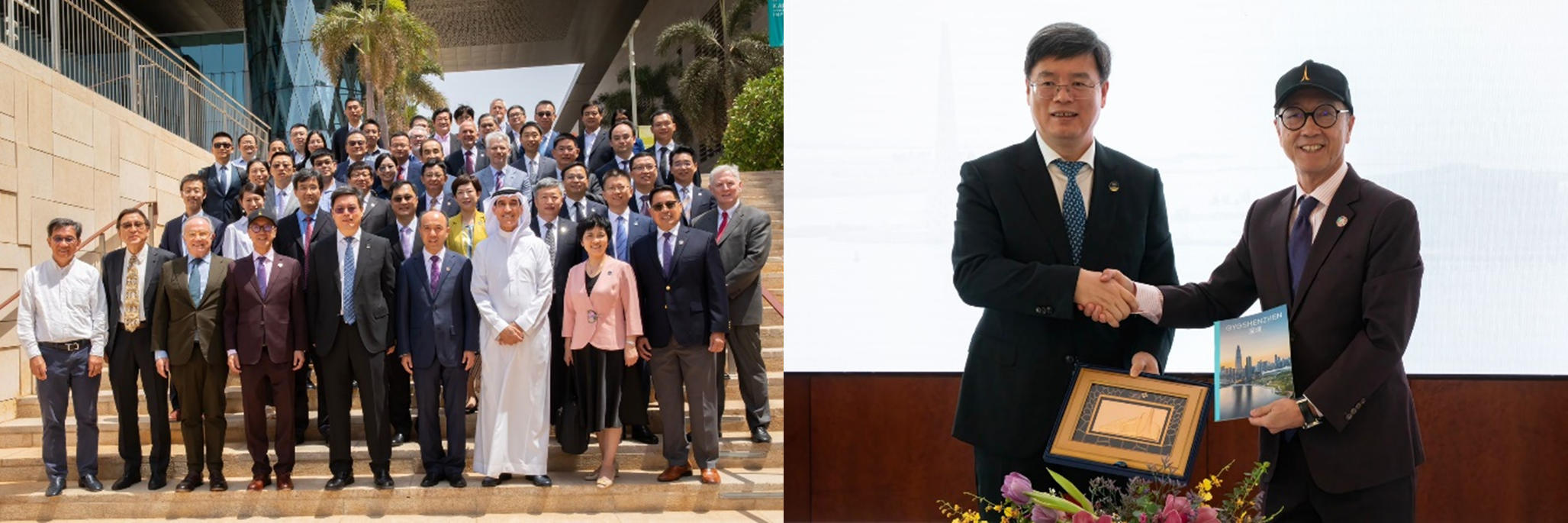KAUST enhances the Kingdom's economic competitiveness by forging transformative research and innovation collaboration with China's Shenzhen City
- Written by Daily Sun

Shenzhen, one of China's foremost hubs of technological development and its third most economically and technically developed city after Shanghai and Beijing, is a strategic partner in enhancing the Kingdom's innovation ecosystem. The collaboration with leading businesses, academics, and innovation specialists in Shenzhen solidifies the University's reputation as a premier global research and technology hub.
During a visit to the University's campus on September 14, H.E. Mayor of Shenzhen, Mr. Qin Weizhong, along with 50 delegates from Tsinghua University; Tsinghua Shenzhen International Graduate School (Tsinghua SIGS), Research Institute of Tsinghua University in Shenzhen (RITS); Chinese University of Hong Kong, Shenzhen (CHUK-Shenzhen); Shenzhen InnoX Academy; and Shenzhen Research Institute of Big Data (SRIBD), signed several Memorandum of Understandings (MOUs) with KAUST. These MOUs emphasize shared capabilities in research, education, talent exchange and training, innovation, and entrepreneurship. These collaborations aim to foster a new generation of scientific research and innovation leaders, elevating the Kingdom's higher education system to unparalleled standards.
The Shenzhen collaboration is part of a central pillar of KAUST's new strategy, unveiled last month. A component of its renewed vision, the University is intensifying its drive to launch initiatives that establish connections with elite academic institutions and innovation hubs worldwide. These alliances aim to deepen scientific relationships, catalyze technology adoption, and promote research commercialization to uplift the Kingdom's economic competitiveness.
KAUST President Professor Tony Chan commented, "Our collaboration with esteemed Shenzhen institutions embodies one of KAUST's primary objectives – to enhance commercialization of our research and promote global research partnerships and talent cultivation. These synergies will amplify our influence and bring tangible benefits to the Kingdom."
During a reception at the Ritz Carlton in Riyadh on September 16, Shenzhen delegates were co-hosted by KAUST and the Kingdom's Research Development and Innovation Authority (RDIA) with esteemed speakers H.E. Dr. Munir M. Eldesouki, President of King Abdulaziz City for Science and Technology, and head of the establishment team of the Research Development and Innovation Authority, H.E. Mayor of Shenzhen Mr. Qin Weizhong, H.E. Chinese Ambassador Chen Weiqing and KAUST Professor Jinchao Xu, and nearly 200 representatives attending from various Saudi ministries and the private sectors, including PIF, Saudi Aramco, as well as other critical business, innovation and research leaders in Saudi Arabia and China.
In March 2023, a delegation from KAUST visited Shenzhen, entering into MOUs with top institutes, including CUHK-Shenzhen, RITS, SRIBD, Southern University of Science and Technology, Shenzhen Institute of Advanced Technology, Shenzhen InnoX Academy, International Digital Economy, and X-Institute.
Hashtag: #KAUST
The issuer is solely responsible for the content of this announcement.
About KAUST
Established in 2009, King Abdullah University of Science and Technology (KAUST) is a graduate research university devoted to finding solutions for some of the most pressing scientific and technological challenges in the world as well as Saudi Arabia in the areas of food and health, water, energy, environment and the digital domain. KAUST is a curiosity-driven, interdisciplinary, problem-solving environment with state-of-the-art labs, distinguished faculty and talented students.
KAUST brings together the best minds from around the world to advance research. More than 120 different nationalities live, work and study on campus. KAUST is also a catalyst for innovation, economic development and social prosperity, with research resulting in patents and novel products, enterprising startups, regional and global initiatives, and collaboration with other academic institutions, industries and government agencies.
For additional information, visit www.kaust.edu.sa.
